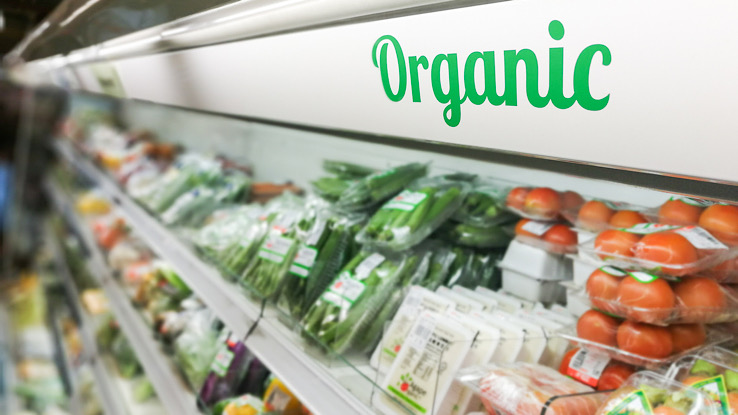
There are often debates about whether organic food is better than inorganic food. There are concerns over the amount of chemicals used, nutritional value, and how expensive products are. Here is some useful information that might help you decide whether you want to go organic or inorganic the next time you go to the grocery store.
What Are Organic Foods?
The word organic can describe many different products like:
- Meats
- Fruits
- Vegetables
- Dairy products
- Grains
Organic foods are grown without the use of chemicals and have the intention of helping the environment. Plants can help conserve water usage, livestock help maintain the land, and help a farm be more self-sustaining. Some of the techniques used for organic foods are:
- Using natural fertilizers, like compost, instead of chemical fertilizers.
- Using insects, birds, plants, and other natural means of pest control instead of spraying insecticides over crops.
- Manually managing weed growth through farming techniques, like crop rotation, eliminating the use of herbicides.
- Using natural methods to care for animals like organic feed rather than giving animals growth hormones.
Are Organic Foods Healthier than Inorganic Foods?

While there are still ongoing studies and tests to determine if organic foods are more nutritious than conventional foods — researchers have yet to determine any significant differences in nutritional value between the two. However, removing chemicals and additives from crops and livestock may be enough reason to convince some people to buy organically grown and unprocessed foods.
The Dangers of Organic Food
While there are often fewer traces of pesticides on organic food, the use of manure as a fertilizer can leave trace amounts of bacteria on food. E. coli can be especially dangerous as it can cause food poisoning. There is also a concern that since many people view “organic” as “healthy,” they may not look at the product’s nutritional value.
Organic Labels
The USDA regulates organic food labels to help consumers make choices:
- “100% Organic” label certifies that the food product is made entirely of organic ingredients.
- “Organic” food label indicates that at least 95 percent of the ingredients found in the product have been certified as organic.
- “Made with organic ingredients” label is when a food product might not meet the USDA’s requirements to obtain an organic label. If certain products contain at least 70 percent organic ingredients, they may carry this label.
- When a product is made up of less than 70 percent organic ingredients, the organic ingredients can only be listed in the ingredients list and not as an actual food label.
Pros and Cons of Organic Food
Although they still may have the same nutritional benefits as conventional food, people may still want to purchase organic foods for the following reasons:
- According to the USDA, organic fruit and vegetable crops have significantly less pesticide residue than inorganic crops.
- Organic foods do not contain additives or substances that may enhance the product, like preservatives, artificial sweeteners, or food coloring.
- It does not allow the use of growth hormones on animals, which some people consider that practice to be a form of animal cruelty.
- Organic agriculture can be better for the environment by reducing pollution and conserving natural resources.
The negative aspects of organic foods that might compel people to stick with inorganic foods include:
- No clear evidence of a higher nutritional value in organic foods.
- Higher prices than inorganic foods due to farming, production, and processing costs.
- Inorganic food might look more appetizing.
- Inorganic and organic foods may taste different.
Resource Links:
- “Organic Production/Organic Food: Information Access Tools” via National Agricultural Library
- “Nutrition and healthy eating” via Mayo Clinic
- “Organic and Conventionally Grown Food” via National Pesticide Information Center





